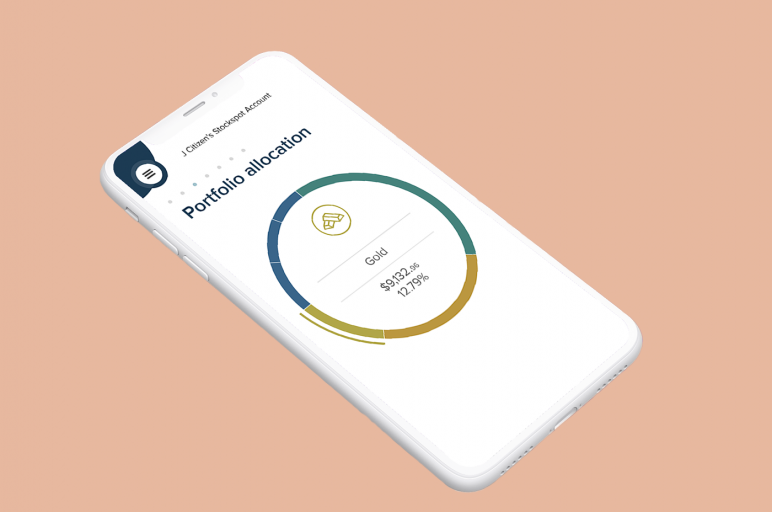Often the best money saving tips aren’t the ones you read in personal finance columns, but the insights discovered by real people. Over the years, we’ve collected a plethora of tips from our clients, and from within the Stockspot team.
Here are some 17 quick money saving tips that draw inspiration from many aspects of life, from budgeting & goal setting to negotiation, lifestyle & shopping.
They’re easy, practical and the best part is you can start doing them all (or a few) immediately.
1. Start a budget – and stick to it
The basic, golden rule of personal finance: start a budget and stick to it! Like any habit, the beginning is hard but it becomes second nature after a while. The best way to do this is to make sure it’s not too restrictive. You want to be sensible, not completely revamp who you are. Make it achievable.
2. Have a side-hustle
We’re all busy and side-hustling is not easy. But these days there are so many ways to make a little bit of extra cash: doing a freelance job online, rideshare driving or Airbnb’ing your house for a weekend.
Even you only make an extra $50 a month, you can save or invest that, and over the long term, it’ll compound and grow.
3. Set up your payroll to get paid into multiple accounts.
If you get paid in to multiple accounts: one for savings and one for spending, you won’t need to set aside money yourself, which will make saving so much easier.
4. Use technology and apps to help you keep track
There are new personal finance and budgeting apps coming out every day. Use one of these to keep a track of where your money is going. Some of them link to your bank account, so it’s all completely automated.
5. Audit your finances regularly
We all do it – a subscription to a newspaper that we no longer read. Or signing up to a ‘free trial’ of a streaming platform you never watch, that’s been debiting $15 from your credit card for the past 15 months.
These things sneak up with such regularity, you need to make sure you’re keeping an eye on these costs every few months. You’ll save thousands over the long term.
6. Occasionally opt for the cheaper option of the expensive things you enjoy
It’s not realistic to expect yourself to give up things you really enjoy to save and invest properly. If you love going to a particular gym class, or enjoy socialising with your friends over dinner, keep doing those things. What’s more achievable is moulding your expensive habits.
Choose a BYO restaurant with your friends, or have meals at each other’s houses. Choose a cheaper gym membership, or create a hybrid fitness model where you work out at home once a week and go to classes twice a week.
A little bit of thought can save a large amount of cash without compromising any of the enjoyment.
7. Batch cooking saves time and dollars
Healthy batch cooking so you have at least a decent percentage of your meals prepared for the week is a great way to look after your health, as well as save money.
8. You don’t need to give up coffee
For many people, that one coffee a day is something that brings joy to their life. Yes it might save you a couple of hundred dollars a year, but maybe a better way to save is to forgo one night out per month. When you add up Ubers/taxis or parking costs, food, and alcohol, the costs are higher and more avoidable than your daily delicious wake-up elixir.
9. Get fit for a cause
It might sound strange, but signing up for a popular running or walking charity event means you’ll spend a lot of time training for it – and often that training is free! It’s a great way to spend time with friends and get fit for very little money.
10. Everything is negotiable
Always remember that ‘everything is negotiable’. Negotiate win/win discounts on things you need to buy, from private school fees to washing machines. Just ask.
11. Ask for better mortgage rates
People don’t do this enough but if you’ve been loyal to your bank, you’re well within your rights to ask for a better mortgage rates. Even it’s a very small discount, the extra cash you save can be invested and help you in the future.
12. Be smart with your credit card and use points
If you have a credit card, be smart with it. Don’t go in to credit card debt if you can help it, and if you can be disciplined, use a card that gives you points. Many people have used their credit card points to buy flights, services or groceries.
13. Stop collecting, and start selling
Rather than accumulating more and more possessions, consider aiming for a small number of possessions that you really love and use. There’s nothing quite as satisfying as selling off things you don’t use anymore.
14. Cheaper is not always better
Sometimes higher quality more expensive products end up being cheaper in the long run. Spend a little more time thinking about what you’re buying, and how you might use your purchase in the future. This is especially relevant when it comes to appliances. Do your research and get the best you can buy in terms of energy efficiency and longevity.
15. Reduce what you need and reuse what you have
If you reduce your overall consumption and reuse as much as you can, you’ll save money and lower your carbon footprint at the same time. Here are some ideas to get you started.
16. Don’t give in to instant gratification
Master the 15-day rule: wait and decide on a purchase for just over two weeks to see if it’s truly necessary or whether you really want it. You can even set a timer on your phone to remind you in two weeks. If you don’t think about it until that timer goes off, chances are it’s a purchase you can live without.
While you’re at it, master the 10 second rule too. If you’re about to make any purchase, think for 10 seconds about why you shouldn’t buy it. Do you really need it? Do you already have something like it? Can you borrow something like it? If your answers are no, yes, yes, you can probably safely put it down.
17. Make sure fees for superannuation (or any investing product) are under 1%
Many super funds have high fees, but you should always be paying less than one per cent per annum in fees so your super isn’t eroded by high fees. One percent doesn’t sound like a lot, but for a young Australian, they could be $200,000 or more worse off compared to someone in a low-fee fund.
The same principle applies to any investing product. You should always check the fees you’re paying because the less you pay in fees, the more you’ll get in returns.
These are just some quick and easy fixes to help get your personal finances in order, but once you get on the money-saving train and realise it’s not that hard, you’ll probably come up with a few of your own.
Once you feel confident that your finances are under control, the next step is to grow your savings and maximise your money.
How do you do that? Smart investing with an online investment advisor like Stockspot.




